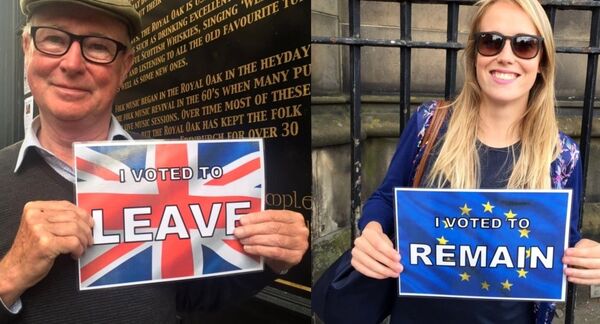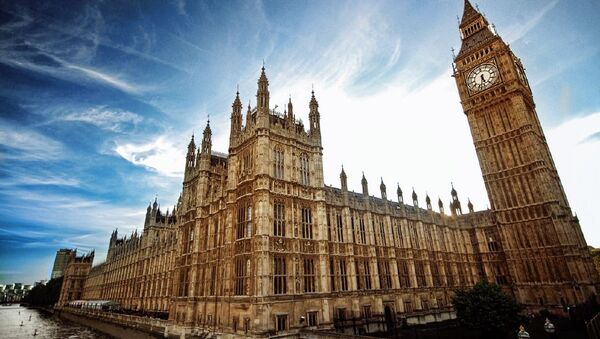The UK voted to leave the EU, in an In-Out referendum held June 23, 2016 and members of parliament (MPs) are due to vote, February 1, on the mechanism to trigger Article 50 of the Treaty of Lisbon — which opens negotiations over how Britain will leave the EU and what its new trading and political relationship will be.
However, a new survey by The UK in a Changing Europe and The Mile End Institute, Queen Mary University of London has found, that there are significant differences between Leave and Remain MPs in what they want out of the negotiations as Britain leaves the EU.
@UKandEU Profound divisions among MPs over Brexit, survey published today reveals. Full report at: https://t.co/DUuRiRGg0W pic.twitter.com/fellmWrPjX
— ESRC (@ESRC) 1 February 2017
The question boils down to: what did most people in Britain mean by "leaving the EU"? Did it mean "hard" Brexit — pulling out of every single institution and agency of the EU? Or did it mean taking back some powers to Westminster, while also continuing to trade — whether as a single market or customs union — with their erstwhile partners? MPs are divided on what they think the public voted for in a referendum, the result of which many did not expect.
"What struck me about it was MPs who voted to leave the European Union (EU) were pretty certain about what they wanted. They wanted to control immigration at almost all costs. That was more important to them than staying in the single market, for example," Professor Philip Cowley of Queen Mary University of London told Sputnik.
"What's interesting about the MPs who voted to remain, was that they are much more varied in their responses, in terms of how they deal with the process of leaving and the bargains and trade-offs that are going to be necessary in leaving.
"They would prefer to stay in the single market and pay money into the EU budget to carry on staying in or to not restrict immigration as much, but they are nowhere near as certain in that view as the 'leaver' MPs are," Prof. Cowley told Sputnik.
Of MPs who voted to leave the EU, 72 percent prioritize controlling immigration or not paying into the EU budget over retaining access to the single market. MPs who voted to remain in the EU, however, are more divided, with under half prioritizing access to the single market over either immigration control or paying into the EU budget, with the rest taking a variety of different positions.
"The issue is what [MPs] think constitutes honestly respecting the referendum result. It's clear that MPs have a more relaxed view on this than the public. In particular, when it comes to paying money for access to the EU in order to receive services or access to the market.
"The majority of the public, in earlier survey work, say that would not count as leaving the EU. Only a minority of MPs think that would not count as leaving the EU. It's clear that some of this is a way of respecting the result, whilst continuing to have access to the EU. But it's not clear that the public would not think that," Prof. Cowley told Sputnik.

Out of Touch?
The polling found MPs overwhelmingly expected the Remain camp to win and MPs claim to have been taken by surprise by the referendum result. Under a quarter (22 percent) thought the result would be a Leave victory; 8 percent thought it was too close to call, whilst 69 percent expected the Remain camp to win.
"One of the key findings of this is that how different MPs are to the public. We know from the way they publicly said how they voted [in the referendum] and form this survey, that somewhere over three quarters of MPs voted to stay in the EU. And we know a majority of the public did not. That's, in a sense, what's driving so much of the debate [on Brexit].
"It's so anguished. A large number of MPs — quite possibly a majority — are going to end up voting for something with which they adamantly disagree. Not something that is going to be minor, or trivial. Something which they think is going to have catastrophic consequences for the country. But they feel they have to, because of the referendum," he said.




